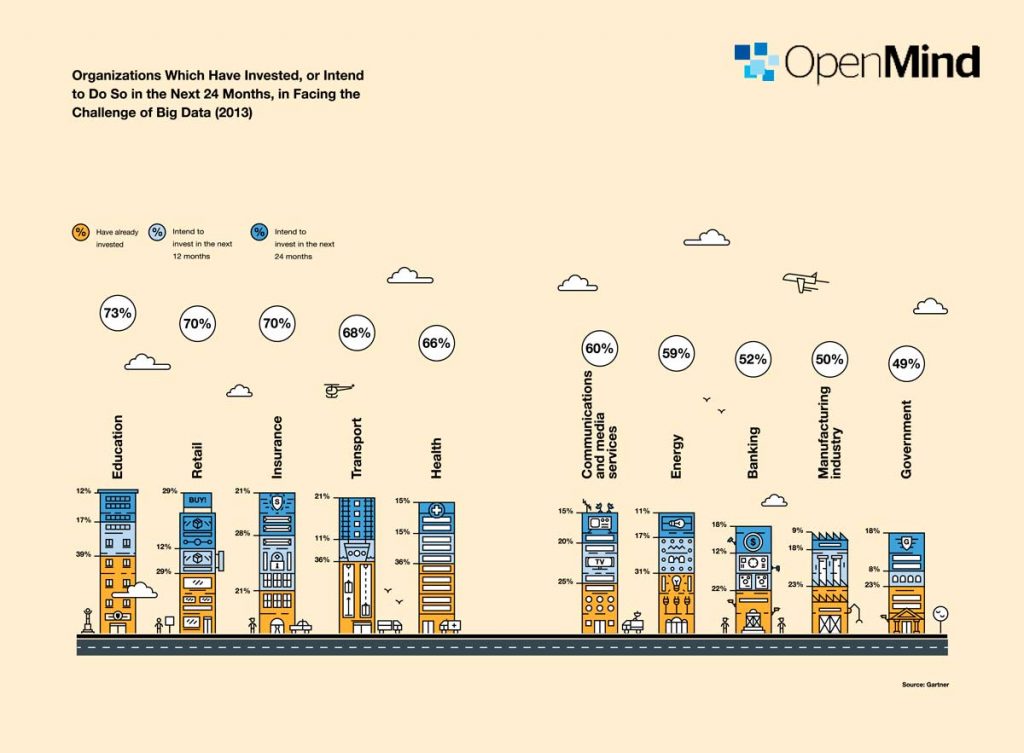Our social environment, how we enjoy ourselves, how we buy, what we study, how we travel,… Everything we do has changed thanks to the Internet and a host of spin-off technologies. Unquestionably this change has also reached the business world. How will the business of the future function? Big data is undoubtedly one of the key ingredients for a successful transformation that has already begun.
In “Reinventing the Company in the Digital Age”, you can find a section dedicated to the emergence of technology in which, through a collection of infographics, highlight the most remarkable aspects of this revolution that is sweeping the business world: big data, open data,… Download the entire infographics collection of this section here.

• A Rapid Transformation
Despite the global recession, we are experiencing a re-acceleration of technological change. One of the important aspects of this change is how big data is reshaping business, transforming the internal organization and architecture of companies. Philip Evans (Boston Consulting Group) describes the two engines of information technology (IT) that are reshaping the organization, corporate strategy and structure: the deconstruction of value chains and the polarization of the economies of mass.
• Redefine the Concept of Privacy
No area of human or sector of industrial activity will be immune to the total reorganization big data is about to bring according to Kenneth Cukier. Although there are still constraints (related to privacy issues), we need to review the cost of gathering information and the difficulty of processing. The editor of The Economist argues that this new world of data affects two areas of public policy: employment (technologies generate a wave of medium term structural unemployment) and privacy (because data is collected invisibly and passively, as byproduct of other services).
• Digitalized Hierarchy
75 years after Ronald Coase’s influential article “The Nature of the Firm”, Geoffrey Moore reviews the role of business leaders in seeking to reshape the future of their companies. There will be changes in the structure of the company, since in the digital economy most resources will be external to companies. This will cause a noticeable change in the hierarchical management structure. As a result, an economy where the majority of middle class jobs will go from being dominated by large institutions to one in which smaller, more agile companies assume the main share.
• An IT Business Model
Business models will evolve, in part because of the profound impact of information technology (IT). Looking at the long term, Professor Haim Mendelson (Stanford Business School) predicts that IT will continue its continuing performance improvement. The combined effect of mobile technologies, devices and wearable sensors, cloud computing and big data technologies will refine the structure of future business models. Mendelson believes that traditional forms of innovation make a difference. Firstly, because underlying business models require continuous innovation and, second, because the new products will continue to require conventional modes of innovation.
To learn more about the effects of the technological revolution in business, you can access all articles mentioned here.
Comments on this publication